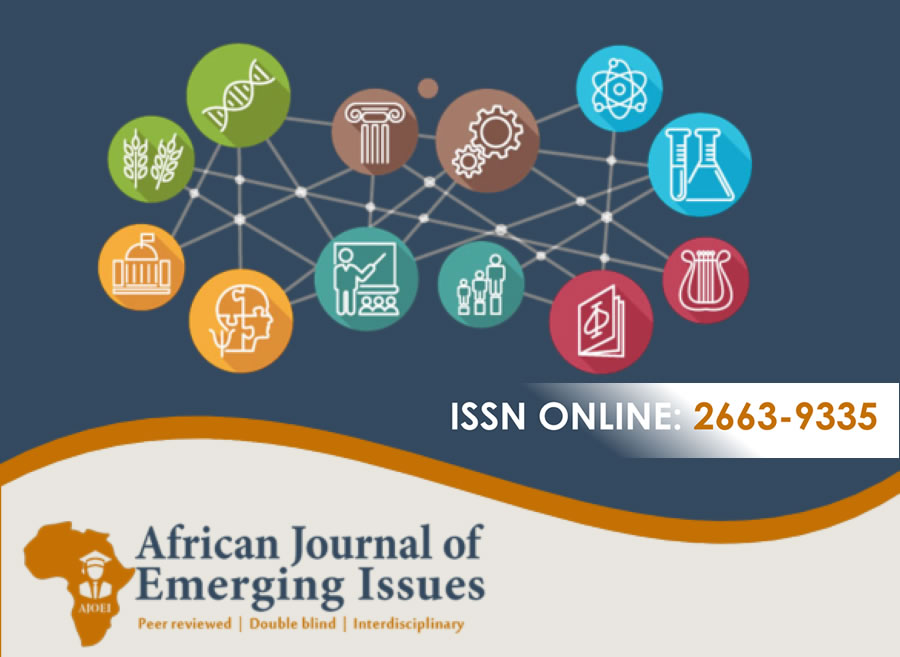SUSTAINABLE PROCUREMENT PRACTICES ON PERFORMANCE OF STATE CORPORATIONS IN NAIROBI CITY COUNTY, KENYA
Abstract
Purpose of the study: The study examined the effect of sustainable procurement practices on the performance of State Corporations in Nairobi City County, Kenya.
Methodology: The study utilized a descriptive research design. Data collection was done through questionnaires and interviews. Descriptive statistics was used to summarize the data, while inferential statistics provided deeper insights into the relationships between sustainable procurement practices and organizational performance. SPSS was used for the analysis.
Findings: The study highlights that sustainable procurement practices significantly influence the performance of state corporations in Nairobi County, Kenya, with procurement planning, information technology, supplier management, and ethical considerations all playing critical roles. While procurement planning and supplier management contribute positively to efficiency and cost savings, gaps remain in policy clarity and stakeholder engagement. Information technology enhances data management and strategic decision-making, though its full potential in resource allocation and sustainability requires further exploration. Ethical procurement practices are crucial for maintaining transparency and integrity.
Conclusion: The study concludes that sustainable procurement practices significantly influence the performance of state corporations in Nairobi County, Kenya, with procurement planning, information technology, supplier management, and ethical standards all contributing meaningfully to operational efficiency, cost savings, transparency, and strategic decision-making.
Recommendations: The study recommends that state corporations should strengthen stakeholder engagement and policy clarity by developing structured frameworks that ensure procurement policies are well-communicated and accessible to all relevant parties. Moreover, it is recommended that state corporations should establish robust oversight mechanisms that promote transparency and accountability while strengthening ethics training programs to encourage adherence to best practices and reduce unethical procurement behaviors such as favoritism and bribery.
Keywords: Sustainable procurement practices, performance, state corporations, Nairobi city county, Kenya
References
Aleman, L. N., & Guererro, T. (2016). Good Procurement Practices and SMEs in Global Supply Chains.
Andereck, K., & Vogt, C.A. (2017). The relationship between residents‟ attitudes toward tourism development options. Journal of Travel Research, 39, 27–36.
Barrett, P. & Lucas, (2016). Balancing accountability and efficiency in a more competitive public sector environment”, Australian Journal of Public Administration
COMESA (2014). Seminar (Common Market for Eastern and Southern African), Procurement Information Systems Seminar, 15th -16th December 2014, Lusaka Zambia.
Council of logistic management (1995). World Class Logistics. The challenge of Managing Change pg. 11.
Ejite, A. (2015) Take it or Leave it, Published by the Daily Monitor News paper June 14th2015;10
Kakooza, T. (2010). An Introduction to Research Methodology
Lawal, S. (2013). Local Government Administration in Nigeria: A Practical Approach.
Lionjanga, A. (2014). Procurement Reform Issues and Challenges. The case of Botswana, a presentation at the WTO-World Bank Regional Workshop on Procurement Reforms and Transparency in Public Procurement for Anglophone African countries, Royal Palm Hotel Dar es salaam Tanzania 14th- 17th Jan 2014.
Makabira, D., & Waiganjo, E. (2014). Role of Procurement Practices on the Performance of Corporate Organizations in Kenya: A Case Study of Kenya National Police Service.
Maurice J. O. (2011). An investigation into the effectiveness of the procurement performance measurement systems : a survey of large manufacturing companies in Nairobi
Mokogi, W. N., Mairura, D. C., & Ombui, D. K. (2015). Effects of Procurement Practices on the Performance of Commercial State Enterprises in Nairobi County.
Nkinga, N. (2014). Public Procurement Reforms, the Tanzania experience, a presentation at the WTO-World Bank on Procurement Reforms and Transparency in Public Procurement for Anglophone African countries held at the Royal palm Hotel, Dar es salaam Tanzania 14- 17th Jan. 2014
Onyango, A. Aladejebi & Adedeji A.O. (2015). Effect of procurement planning on the performance of selected agricultural firms in Ondo State, Nigeria
Robert H. (2011). The UNICTRAL Model Law on Procurement of Goods, Construction and Services.
Robert. H. (2014) Obstacles to Public Procurement at the WTO-World Bank Regional Workshop on Procurement Reforms and Transparency in Public Procurement for Anglophone Africa countries, Royal palm Hotel, Dar-es-salaam Tanzania 14th - 17th Jan 2014.
Serunkuma, S. (2015). Skewed Tendering leaves consumers hostage, Business Power Published by the Daily Monitor 17th Feb. 2015
Uganda Bureau of Statistics (2014). The task force, a Report on Public Procurement Reforms in Uganda. (March, 2014).
World Bank (2014). Operational Quality and Knowledge Services in the African Region” Country procurement Assessment Report. (Uganda CPAR 2014), volume 1 Main Findings and Recommendations.





